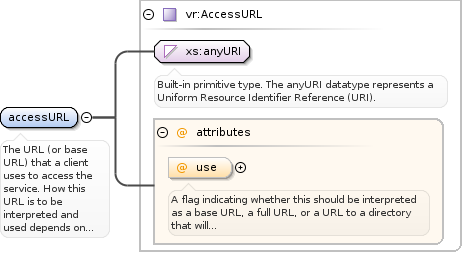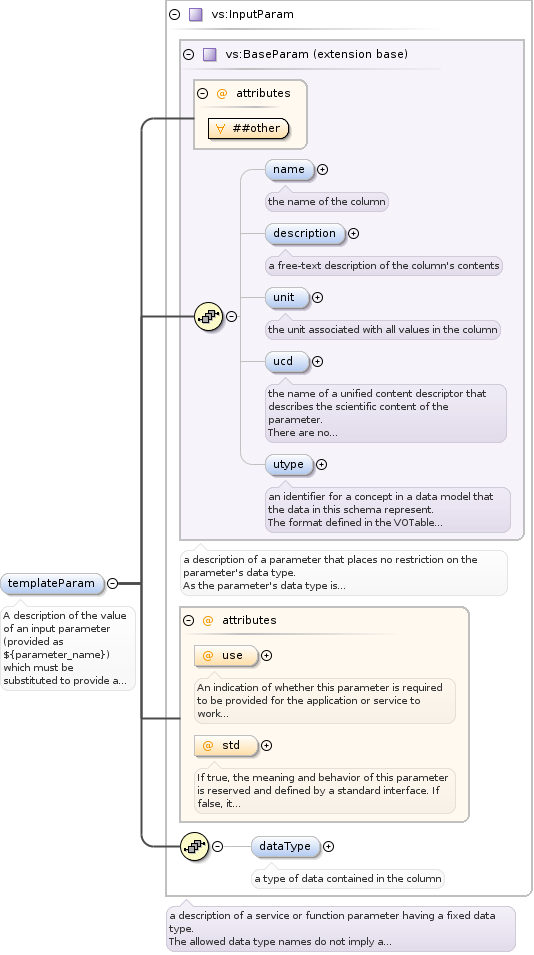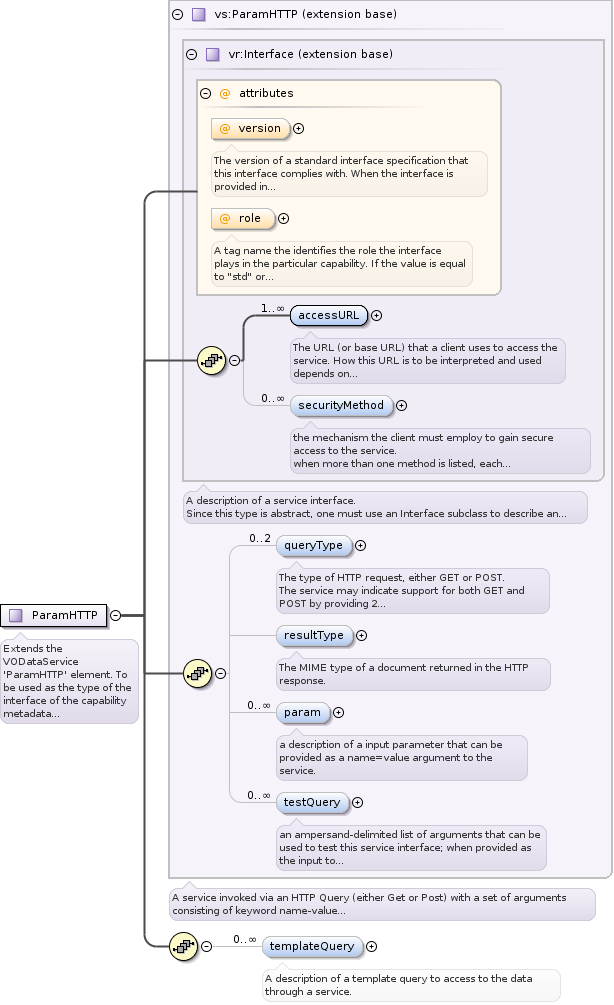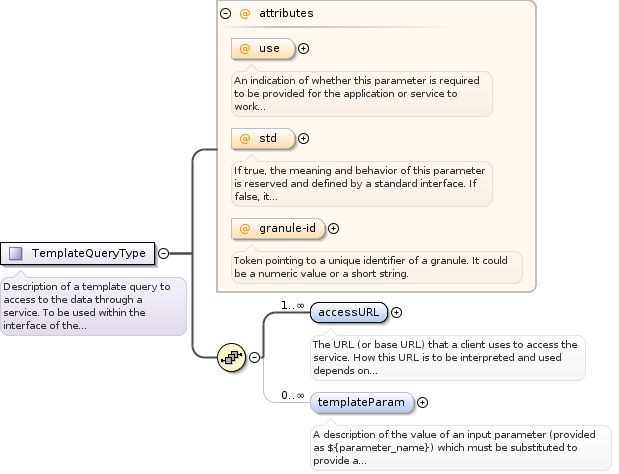| Namespace | http://voparis-europlanet.obspm.fr/xml/PSR/v1.0 | ||||||||||||||||||||||||||||
|
Annotations
|
|
||||||||||||||||||||||||||||
|
Diagram
|
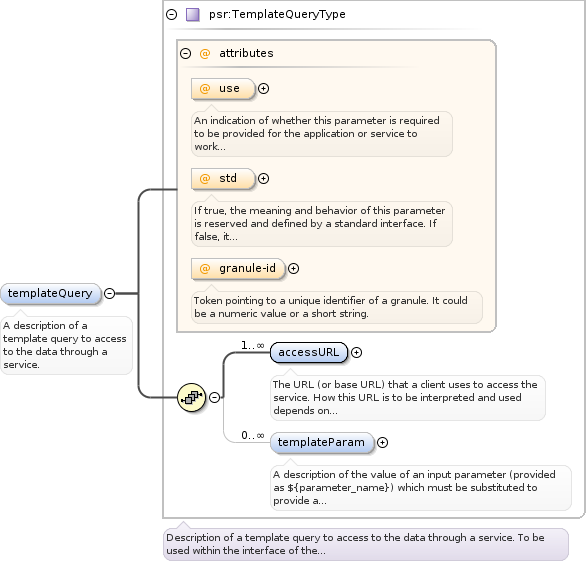 |
||||||||||||||||||||||||||||
| Type | psr:TemplateQueryType | ||||||||||||||||||||||||||||
|
Properties
|
|
||||||||||||||||||||||||||||
| Model | psr:accessURL+ , psr:templateParam* | ||||||||||||||||||||||||||||
| Children | psr:accessURL, psr:templateParam | ||||||||||||||||||||||||||||
|
Instance
|
|
||||||||||||||||||||||||||||
|
Attributes
|
|
||||||||||||||||||||||||||||
|
Source
|
|
